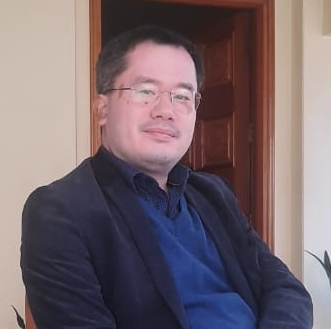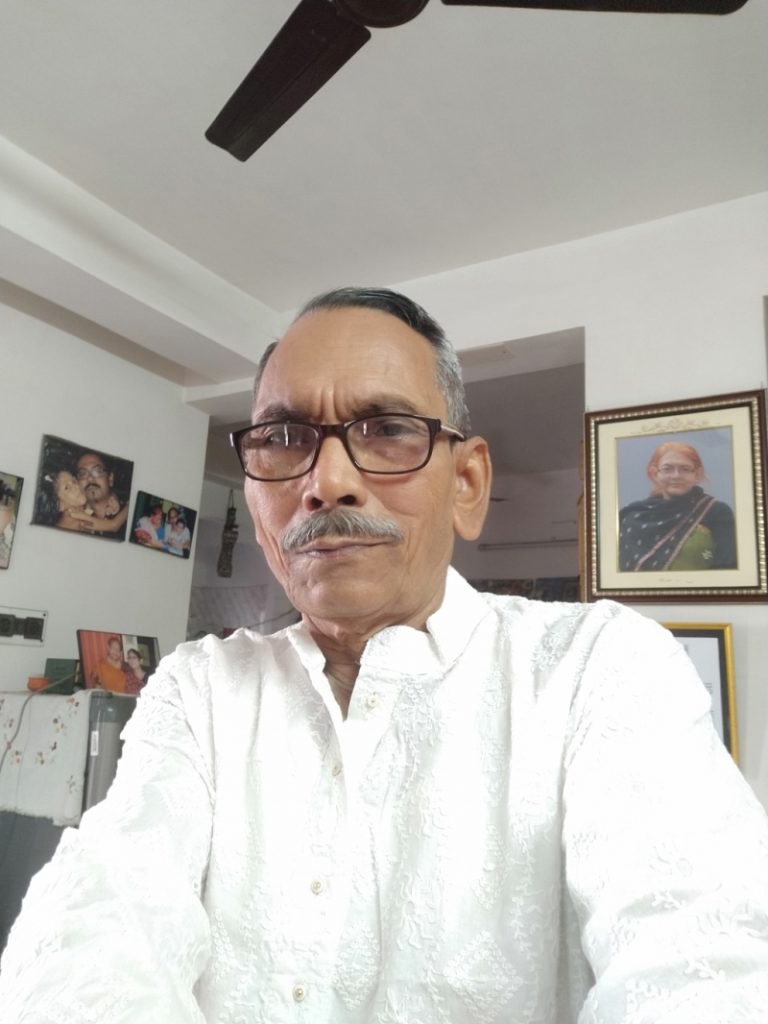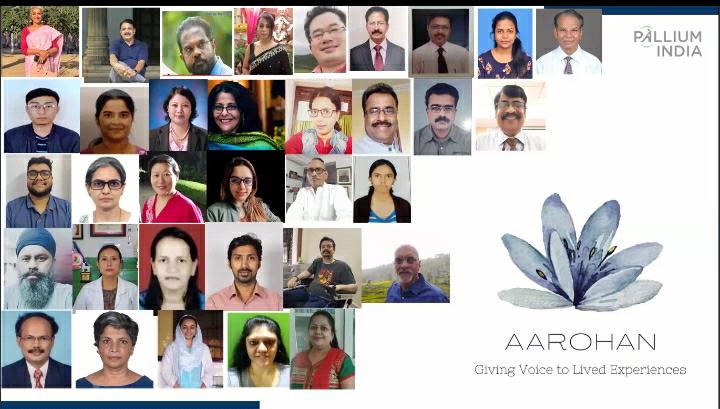Aarohan II – a giant leap for palliative care

“Aarohan, through its untiring and sustained efforts, has always strived to give meaning and purpose to our existence. One of the sessions of Aarohan II that deserves mention is the one on “Resource Mobilisation” on 6th March 2021, facilitated by the subject expert, Ms Poonam Bagai, Founder of Cankids. The session has strongly advocated the need for resource building, allocation on priority and strict adherence to the legal aspect while raising funds. These are quite necessary for smooth and sustained functioning of the palliative care organization. I personally got enlightened by this session and firmly believe that my endeavor to set up palliative care service will definitely get impetus.
“Thank you, Team Aarohan.”
Dr. Rakesh Nongthombam, Associate Professor, Department of Anaesthesiology, JNIMS, Imphal, Manipur
Marvellous experience of Aarohan II

‘The more I am blessed to be associated with Pallium India, the more I am enriched with the multifarious field of Palliative care. Aarohan ll is an online educational series conducted by Pallium India.
“Aarohan – the word, closely related to Sanskrit, means to rise or to ascent. Aarohan II started on 28th November 2020, and continued every Saturday from 3pm to 4:30pm and ended on 1 May 2021. Over 40 participants from different parts of India and World (U.S) joined these interactive 20 sessions with a mission to advocate the essence of Palliative care, a humanitarian approach, to teach us how to live with better quality of life and dignity providing comfort with the aid of empathy, compassion and love. I cannot but admit the resonance of Aarohan II. All the faculties with deep insight imparted different topics in a lucid way and I was overwhelmed by the teaching and learning process. I am enlightened with a few most interesting topics like, Effective communication for stakeholders engagement and fund raising, The importance of communication in advocacy, Affecting change assessing landscape, Advance directives, Consideration at the end of life and Looking after yourself while affecting change.
“Team Pallium India act as a bridge connecting us to a strong bonding and I opine that now onwards advocacy of Palliative care will have logarithmic function. Amazing task of bringing all of us together to one platform successfully by team Pallium India, especially Shriya ( Moderator), Rajalakshmi, Vyshnav and others.”
Pranab Basu, palliative care volunteer, West Bengal.

Aarohan has been specifically designed for individuals with lived experiences of palliative care to strengthen their voices and to support their communities. This year for Aarohan II, we had a diverse group of 40+ participants including caregivers, people living with life limiting conditions, healthcare providers and others from 14 states across India and from California, USA.
We completed 20 sessions on the 1st of May. In the last session, 25+ participants shared their future and ongoing projects to provide Palliative Care initiatives in their respective communities. The project’s focus areas were service delivery, influencing policy and Advocacy in Palliative Care.
Read more about Aarohan:
Project Aarohan: Transforming Beneficiaries to Change-makers
Pallium India launches second edition of Aarohan – Giving voice to lived experiences
Aarohan is just not a training programme, it is a family which will continue to support each other. The following was the schedule and faculty details for Aarohan II.
| Sl No | Topic | Learning Objectives | Faculty |
|---|---|---|---|
| Phase 1 – Understanding Palliative Care | |||
| 1 | Introduction to Palliative Care & Advocacy | -Understanding the basics of Palliative care -Understanding what advocacy means -The role of advocacy in making palliative care accessible | Dr. M.R. Rajagopal, Pallium India |
| 2 | What is Palliative Care? | – Understanding Palliative care and the various players involved – Patient, doctor, family, society dynamics – Challenges – collusion, social implications, financial implications, spiritual implications – Myths and fears – Medical aspects of Palliative care | Smriti Rana, Pallium India |
| 3 | Setting Goals — Interactive | -Understanding what participants would like to achieve through this programme for their communities | Smriti Rana, Pallium India/ Githanjali Pannikar, Ashwatha |
| 4 | Palliative care during Humanitarian Crisis + Review of topics covered so far | – Understanding how palliative care is impacted during humanitarian crisis – Open Q&A review of understanding of palliative care | Joan Marston |
| Phase 2 – Tools for Advocacy | |||
| 5 | Effective communication for stakeholder engagement and fundraising | – Understanding the basics of grant and proposal writing – Understanding ways engage stakeholders and fundraisers | Harsh Vardhan Sahni, Pallium India |
| 6 | Affecting change, assessing the landscape | -Understanding how to identify stakeholders, their roles and spheres of influence -Understanding how the interplay of power dynamics influences the trajectory of social change -Mapping relevant stakeholders and using it as a tool to devise advocacy strategy -Power Mapping | Smriti Rana, Pallium India |
| 7 | The Importance of Communications In Advocacy I- Taking a strategic approach | -Identifying your audience -Creating relevant messaging -Available platforms for communications -Using platforms effectively -Measurement | Antara Telang & Sylvia Mason, The PRactice |
| 8 | The Importance of Communications In Advocacy II- Building curiosity / breaking down the apathy + Phase 2 review | -Case Study: Pallium’s Good Grief campaign: why it worked -How to design and implement a campaign – Best practices for Social Media – Community engagement at work | Sylvia Mason & Antara Telang, The PRactice |
| Phase 3 – Advocacy Channels | |||
| 9 | Action through Advocacy: Case Study – Carers Worldwide | -Learn how strategic advocacy can affect change -Understand how carers/patients can gain access to services and local government entitlements through advocacy | Anil Patil, Carers Worldwide |
| 10 | Advocacy with the Community | – Understand how to organize awareness building events within a community – Understand how to manage expectations and dispel myths in community settings – Understand how to encourage open communication and community participation | Venkat Chekuri, Karuna Trust |
| 11 | Advocacy through Legislation – The story of NDPS | -Understanding advocacy with lawmakers -Understanding what the process of affective legislative changes can be like | Tripti Tandon, Lawyer’s Collective |
| 12 | Advocacy with Government I | -Status of Palliative Care in India -National Policy -NPPC – Center and at state level -Current Status of NPPC -Role of NHM -Process of NPPC Budget -Implementation of NPPC -Government Officials involved in palliative Care -Hierarchy & structure of Governing bodies | Shalini A.J, Pallium India |
| 13 | Advocacy with Government II + Phase 3 Review | -State Policy -Opioid Accessibility -MoUs -Case Studies -Success and Failures | Shalini A.J, Pallium India |
| Phase 4 – Mobilization | |||
| 14 | Resource Mobilisation | -Understanding the importance of engaging partners -Understanding how to create budgets, allocate funds and raise funds -Understanding how to harness available resources -Understanding how to create and manage a team | Poonam Bagai, Cankids..Kidscan |
| 15 | Community Mobilization | -Understanding how to engage people within the community -How to empower your community to work together for a common cause -How to create leadership and advocates within the community | Dr. Sanjana Mohan ,Basic Health Services |
| 16 | Planning Ahead + Phase 4 Review | -Identifying areas for advocacy and creating a time-bound strategy – Guidelines for final presentations | Shriya Singh, Pallium India |
| Phase 5 – A Deeper Understanding | |||
| 17 | Advance Directives | -Understanding what Advance Directives means and their role in empowering patients and families in healthcare settings -Understanding the current status of Advance Directives in India -What needs to change in the current scenario | Dr. Roop Gursahani, ELICIT (End of Life Care India Taskforce) |
| 18 | Considerations at the end of life | -Recognize the dying process -Describe when it is appropriate to withhold treatment -Prescribing for end of life care -Communication with the patient and family at the end of life -Bringing about systemic changes for carers | Dr. Rajagopal, Pallium India |
| 19 | Looking after yourself while affecting change | -Understanding who I am and the significance of self-awareness in being a catalyst of change -Dynamics of self-care: psychosocial and cultural -Elements of Wellbeing -Understanding stress, burnout and building practices of resilience | Ms. Bhavana Issar, Caregiver Saathi |
| 20 | Moving Forward + Review | Participant’s presentations and close out | Shriya Singh, Pallium India |







Feeling gratitude to Pallium India for publishing my article on this space of Newsletter.
Aarohan ‘ll really taught us wholesome care of the suffering fellow beings in a easily assimiable manner for the divergent group of learners
Whole credit goes to prof Dr RAJAGOPAL and his dedicated team for organising such a wonderful programme
All the speakers had explained clearly and interestingly
I am sure that we will implement the projects proposed by us during the final day of our session
I wish PALLIUM INDIA continue their yemon services in policy changes, teaching,,advocacy and servives